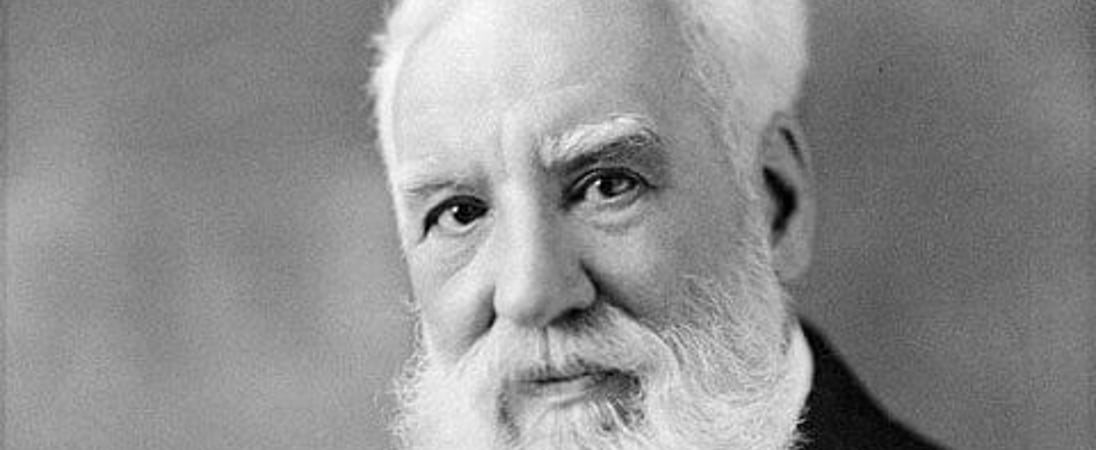
Alexander Graham Bell's birthday
Alexander Graham Bell, born on March 3, 1847, in Edinburgh, Scotland, was a pioneering inventor. He moved to Canada in 1870 and later to the United States, where he invented the telephone in 1876.
Bell’s work was deeply influenced by his close connections to the deaf community, including his mother and wife. Beyond the telephone, he invented the photophone and the graphophone, contributing to optical telecommunications and sound recording.
Bell’s contributions were recognized with awards like the French Volta Prize, which he used to support scientific research. He passed away on August 2, 1922, in Nova Scotia, Canada, leaving a legacy of innovation in communication and beyond.
Alexander Graham Bell’s Early Years and Education
Alexander Graham Bell, born on March 3, 1847, in Edinburgh, Scotland, grew up surrounded by sound yet closely connected to silence.
His mother’s near-deafness and his family’s work in speech shaped his personality. Early on, Bell showed a keen interest in sound and communication. He started learning at home, where creativity and speech were key. Bell left school at 15, eager to explore beyond the classroom.
By age 12, Bell had created a dehusking machine, showing his inventive spirit. He also enjoyed art, poetry, and music, encouraged by his mother.
In 1865, moving to London exposed him to his father’s work with the deaf, influencing his career. Despite qualifying for University College London, Bell’s studies were cut short by family events, leading to a move to Canada in 1870.
In Canada, Bell’s interest in sound technology deepened. In 1871, he moved to Boston and began teaching speech to deaf students, merging his interests with his family’s background. This role paved the way for his groundbreaking invention: the telephone.
Alexander Graham Bell: A Legacy of Innovation
Alexander Graham Bell’s life was a testament to the power of innovation, scientific curiosity, and entrepreneurial spirit.
Best known for inventing the telephone in 1876, Bell’s achievements spanned across various fields, making him one of history’s most influential figures in communication and beyond.
The Invention that Changed the World
The telephone, Bell’s most famous invention, transformed communication by enabling voice conversations over long distances.
His patent for the device in 1876 marked the dawn of a new era in human interaction. Following this breakthrough, Bell co-founded the Bell Telephone Company in 1877, which laid the groundwork for the global telecommunications industry and eventually evolved into the giant AT&T.
Beyond the Telephone
Bell’s intellectual curiosity led him to explore numerous other areas:
- Photophone: In 1880, Bell invented this device that transmitted sound on a beam of light, a precursor to modern fiber optics.
- Aeronautics: His passion for flight led to the co-founding of the Aerial Experiment Association in 1907, which developed several experimental airplanes.
- Hydrofoils: Bell’s work in naval engineering resulted in the HD-4 hydrofoil boat, setting a world water speed record in 1919.
- Medical technology: Bell’s invention of an early metal detector in 1881, aimed at locating a bullet inside President James A. Garfield, showcased his versatility in invention.
Personal Life and Contributions to Education
Bell’s connections deeply influenced his work, especially his commitment to helping the deaf. His wife, Mabel Gardiner Hubbard, whom he married in 1877, was deaf, as was his mother.
This personal aspect of his life fueled his dedication to deaf education and communication, leading to significant contributions to the development of American Sign Language and teaching methods for the deaf.
Honors and Recognition
Throughout his life, Bell received numerous accolades for his contributions to science and engineering, including the Albert Medal (1902) and the John Fritz Medal (1907), highlighting his status as a revered inventor and scientist.
Legacy and Impact
Alexander Graham Bell’s inventions and their impact on telecommunications, aviation, and beyond have left an indelible mark on modern society.
His work with the deaf community and his broad scientific inquiries underscore the breadth of his interests and his commitment to improving human life. Bell’s legacy is a reminder of the transformative power of human ingenuity and the enduring impact of curiosity-driven exploration.
Interesting Facts About Alexander Graham Bell
Invention Inspired by Love: Bell’s invention of the telephone was motivated by his love for Mabel Hubbard.
A Call for Help: The first words Bell spoke through the telephone may have been an emergency call for help rather than the well-known summoning of his assistant, Watson.
Pioneer of Modern Technologies: Bell’s experiments led to early versions of technologies that would evolve into cassette tapes, floppy disks, and fiber optics.
The World’s Fastest Speedboat: Bell’s fascination with hydrodynamics led to the creation of the HD-4, a hydrofoil boat that set a world speed record in 1919.
Contribution to Aviation: Bell also contributed to Canada’s aviation history. He assisted with the AEA Silver Dart, which made the first powered flight in Canada in 1909.
Multilingual Talents: By the age of 16, Bell had learned Greek and Latin, reflecting his wide-ranging intellectual curiosity.
Also on this date...
International Irish Whiskey Day
Savoring that smooth, amber-hued spirit with a rich heritage, evoking the warmth of tradition and the charm of Irish culture.
World Wildlife Day
Nature's untamed wonders are always captivating, from the majestic beasts of the savanna to the tiny creatures in your backyard.
National Canadian Bacon Day
This savory meat is a breakfast staple, often served with eggs and toast. It's a delicious and protein-packed way to start your day!




